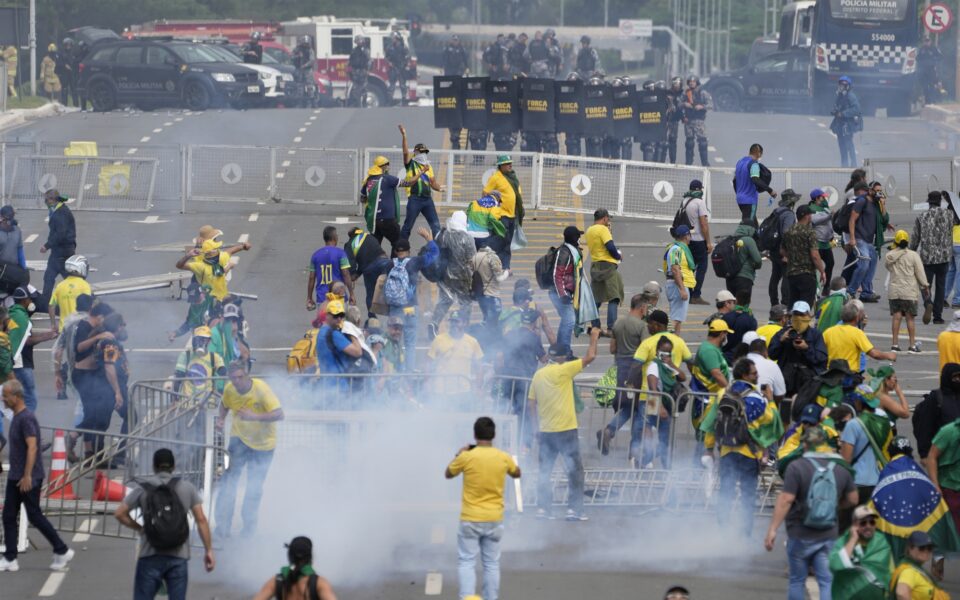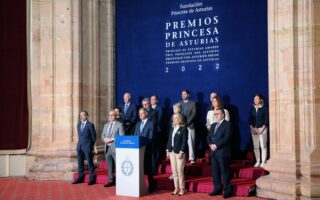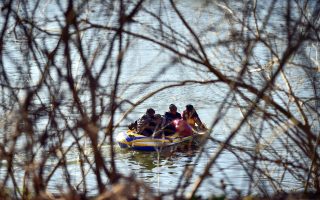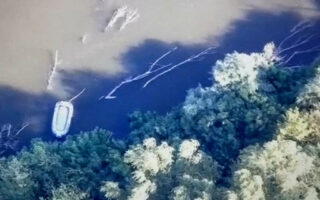The new world economy and the effects on Greece

BELEM, Brazil – I write today from Brazil to inaugurate a new series of columns for Kathimerini. My columns in the months ahead will discuss the dramatic changes under way in the world economy, and how these changes affect Greece. Most importantly, I will analyze how new forms of global cooperation, including Europe, China, the US, Middle East, Africa, Latin America and the rest of the world, should be implemented to face the world’s growing crises.
The great global challenges include the deep dangers of environmental catastrophe; the rising inequalities in societies around the world; and the onrush of new technologies that threaten to disrupt the world if these technologies are not properly used and governed.
Brazil is in fact an excellent place to launch the new column. At the start of the new year, President Lula da Silva, who was an excellent president during 2003-2010, returned to office after his election victory in October. Lula will not only be an effective leader of Brasilia, but an important world leader as well. In 2024, Brazil will hold the Presidency of the G20.
I was in Brasilia last week to meet his excellent new economic team. Lula’s well-wishers poured out across the country in a revival of hope for Brazil after four years of disastrous rule under his right-wing predecessor, Jair Bolsonaro, who fled Brazil for Florida on the eve of Lula’s inauguration.
Sadly, Bolsonaro also left behind a mob that rampaged government office buildings one week after President Lula’s inauguration. Around 1,500 people were arrested.
The mob tactics will not stop Lula, nor will they have a long-term effect in the US, where Donald Trump’s similar maneuvers on January 6, 2021, were also shut down. In both cases, demagogic politicians used social media to rile up a mob; in both cases, the mob was put down within the day.
The deep economic changes under way in the world can’t and won’t be stopped by mobs. Our real challenge is to understand these deeper changes so that we can manage them for the common good. Greece, of course, will play a leading role in guiding and managing these global changes, as the home of Western democracy and a vital bridge connecting Europe, Africa and Asia. Greek scientists and engineers are helping to usher in the new digital age.
The biggest global crisis today is geopolitical. We are no longer in a US-led world, or even a world divided between the US and its rival China. We have already entered a truly multipolar world, in which each region has its own issues and role in global politics. No country and no single region can or should any longer determine the fate of others. This is a complex and noisy geopolitical environment – with no country, region, or alliance in charge of the rest.
The management of a multipolar world is fraught with difficulties. We urgently need much more dialogue among nations and to move beyond the simplistic propaganda of our own governments. In the US and Europe, we are bombarded daily with ridiculous official narratives, most originating from Washington, that Russia is pure evil, that China is the greatest threat to the world, and that only NATO can save us.
These naive stories are a great hindrance to true global problem solving. They trap us in false mindsets, and even in wars that should never have occurred. The war in Ukraine must urgently be stopped by negotiation rather than by military escalation.
Greece will play a leading role in guiding and managing global changes, as the home of Western democracy and a vital bridge connecting Europe, Africa and Asia
When the major nations accept the reality of a multipolar world, we will be able to solve problems that have so far eluded us. Only true dialogue and consensus building among nations and across regions can bring about a secure peace. In the Eastern Mediterranean, Black Sea, North Africa and the Middle East future security and prosperity lies with cooperation, not confrontation, among Europeans, Arabs, Turks, Iranians and others, to overcome ancient and recent enmities.
At the recent gathering at COP27 in Sharm-el-Sheikh, leaders of the Eastern Mediterranean and Middle East came together to protect the region from global climate change. The leaders recognized that the urgent mission of preserving the “cradle of civilization” must supersede ongoing rivalries and tensions.
Military solutions can play no constructive role in addressing such challenges. The idea of expanding NATO (or similar alliances) is a dangerous anachronism, not a true source of regional security. It was, after all, the US push to expand NATO to Georgia and Ukraine that did much to trigger the Russian-Georgia War in 2008 and the Russian-Ukraine War that started in 2014 and escalated dramatically in 2022. Nor did the NATO bombing of Belgrade in 1999, the failed 15-year NATO mission in Afghanistan, or the NATO bombing Libya in 2011 accomplish any real geopolitical objectives for the US or the world.
China, in my view, is not the grave threat that is now portrayed daily by the US government, and increasingly by Brussels. China is an ancient civilization of 1.4 billion people (almost one in five in the world) that aims for high living standards and technological excellence like other successful countries. We will best solve our global problems not by vainly trying to “contain” China, but by cooperating, negotiating, trading, and yes, also competing economically, with China.
The environmental catastrophes are intensifying rapidly. These crises include human-induced climate change; the destruction of biodiversity; pollution of the land, air and oceans; and the threats to major ecosystems such as the Amazon rainforest, where I am today. Every region needs a pathway to zero-carbon energy, sustainable land use, and sustainable global supply chains.
Solutions will require a high degree of cross-border cooperation. The zero-carbon energy solutions for Europe, Africa, Middle East and the Black Sea region should be based on an interconnected power grid that connects all these regions with zero-carbon power. Greece will be a crucial hub of that interconnected grid.
The world also faces the challenge of rising inequalities. Societies are divided by class, educational attainment, and sector and type of work. The growing inequalities should be overcome through more effective systems of social protection, higher labor standards, and better educational opportunities for all.
Technological change is the deepest long-term driver of global change. We need new sustainable technologies to confront the interconnected crises of climate change, hunger, education and public health. Yet we will suffer from the new technologies if they are misused. Every day we confront the economic and social disruptions and inequalities caused by artificial intelligence, robotics and social media. We must handle these disruptions wisely and for the common good.
The pace and scale of global changes – geopolitical, environment, social and technological – are unprecedented. True solutions lie in a better understanding of the forces at play, more international cooperation, and a global spirit of problem solving. A better understanding of the new world economy, and solutions to our growing set of crises will be the aim of my new columns in the months ahead.
Jeffrey D. Sachs is professor at Columbia University, director of the Center for Sustainable Development at Columbia and president of the UN Sustainable Development Solutions Network. He has served as adviser to three UN secretaries-general, and currently serves as an SDG advocate under Secretary-General Antonio Guterres.





